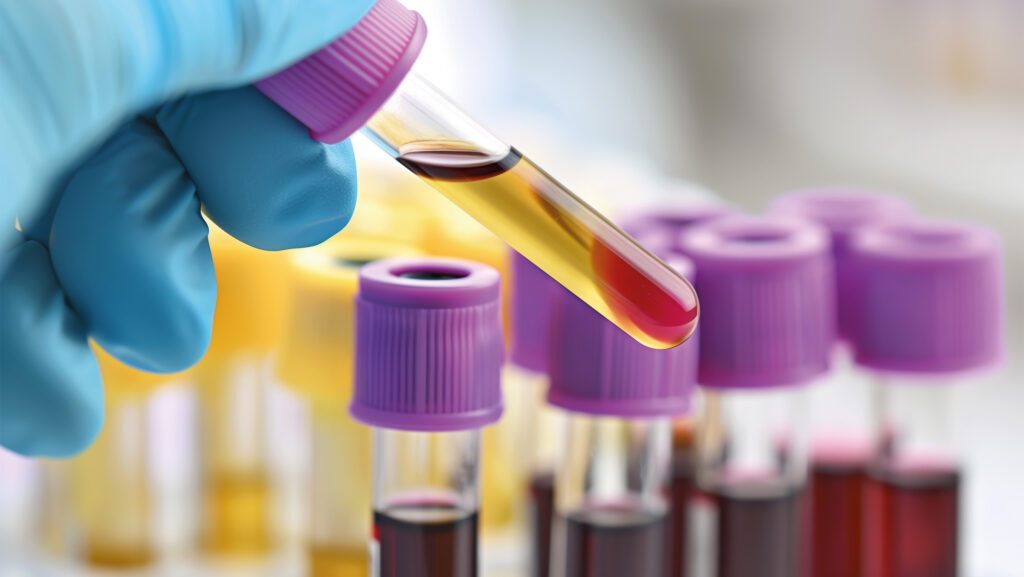Farm doctor: Blood in urine and what it could mean
 © Adobe Stock
© Adobe Stock Seeing blood in your urine can be alarming, but the cause is often a simple infection that can be easily treated following medical diagnosis.
However, in some cases this condition, known as haematuria, is an early sign of bladder or kidney cancer and therefore should never be ignored, advises farmer’s daughter and doctor Camilla Baker.
See also: Farm Doctor: How to spot signs of poor mental health
In this month’s Farm Doctor, Camilla explains why haematuria can be a symptom of many different conditions, some more serious than others.
What to look out for
Blood can either appear as streaks in urine or colour the liquid red or brown.
It is usually indicative of a problem with the kidneys, the bladder or their interconnecting tubes, because urine is made in the kidneys and slowly trickles down via the ureters to the bladder, where it is stored until we feel the need to use the toilet.
Haematuria has many causes
Urine infection
A urinary tract infection (UTI) is one of the most common causes of haematuria.
In this instance, blood in urine can be accompanied by other symptoms such as pain when going to the toilet or feeling the urge to pass urine more frequently, and some people experience abdominal pain or fevers.
In most cases, a UTI can be treated with a course of antibiotics, says Camilla. “If you have multiple UTIs or other symptoms, further tests may be necessary.”
Kidney infection
A kidney infection has similar symptoms to a UTI, but is typically more severe: a high fever and abdominal pain in the sides or back, for example.
Kidney infections can be treated with antibiotics, but if a person is very unwell they may need to be admitted to hospital, says Camilla.
Urethritis
Sometimes the urethra, the tube that allows urine to exit the bladder, becomes irritated and small amounts of blood leak into the urine.
Infections that cause this irritation can normally be treated with antibiotics, Camilla explains.
Kidney stones
A kidney stone, a hard stone that forms in the kidneys, is very common, occurring in up to one in seven people. People are more likely to get them if they allow themselves to become dehydrated, says Camilla.
When these stones pass down the urethra to the bladder, the abdominal or loin pain can be severe and be accompanied by bleeding, but in other cases blood mixing with the urine can be the only indicator.
Men can also experience pain in their testicles.
Camilla urges people to seek urgent medical advice if they are experiencing severe abdominal pain or if they develop fevers and chills.
Kidney or bladder cancer
Blood in urine is one of the most common and earliest signs of cancers affecting the bladder or kidneys.
Although Camilla advises that in the majority of cases blood in urine is not due to these cancers, she says it is important to get checked.
Prostate issues
As men age their prostate can get bigger and can cause small amounts of blood to leak into the urine.
Given the industry’s ageing workforce, this is something farmers should be aware of.
Investigation and diagnosis
If you notice blood in your urine, even if it comes and goes, it is important to visit your doctor for a check-up, Camilla advises.
“Your doctor will likely examine you and ask for a urine sample and test the urine for signs of blood or infection,” she says.
If the urine test shows evidence of infection, a short course of antibiotics is usually prescribed, but if there are no signs of an infection, or if the symptoms persist after treatment, the doctor may make a referral for more tests.
These may include scans or a cystoscopy, a procedure involving a very small telescope being passed through the opening of the urine passage to investigate the bladder.
The timeline for tests will depend on age and medical history.
“It is important the doctor knows if you have had urine infections before, or if you have a family history of cancers,” says Camilla.
Case study: Andrew Delbridge, Norfolk
The day Andrew Dellbridge first noticed blood in his urine is one he will never forget.
“As a family we were heading off fishing for the afternoon, but I was completely preoccupied.
“The amount of blood was significant and I immediately jumped to the conclusion that it must be cancer,” recalls Andrew, a sheepdog trainer who lives in Norfolk where he also keeps sheep.
He booked an appointment with his GP and underwent tests, but before he received the results he was woken one night by crippling pain in his sides and back.
Andrew called the NHS 111 out-of-hours helpline and was taken to hospital by ambulance.
Eventually he was diagnosed with kidney stones and, while he waited to have laser treatment for those, he had a stent fitted to allow urine to pass by the stones, as there was a danger that the blockage could make his kidneys fail.
Although the laser treatment managed to destroy most of the stones, he still has some on his right side.
“It is uncomfortable. I drink lots of water when the pain gets really bad and occasionally take painkillers,” he says.
At 55, Andrew says doctors have told him that his age is a contributory factor, but have also advised him to increase his water intake and reduce salt in his diet.
He previously worked for a charity helping people affected by drug and alcohol abuse and, by encouraging them to seek help when they needed it, he is aware of how important it is to follow that advice.
“As men we can be hopeless at not talking about things, but if you spot blood in your urine, why would you not go to your doctor?”

